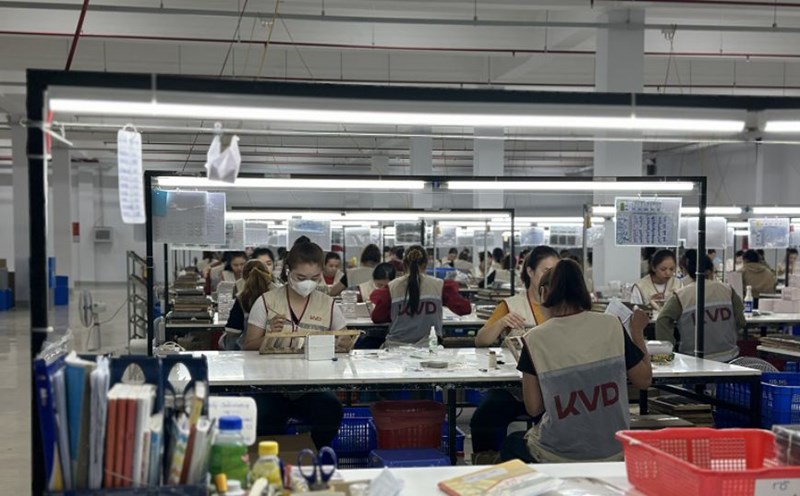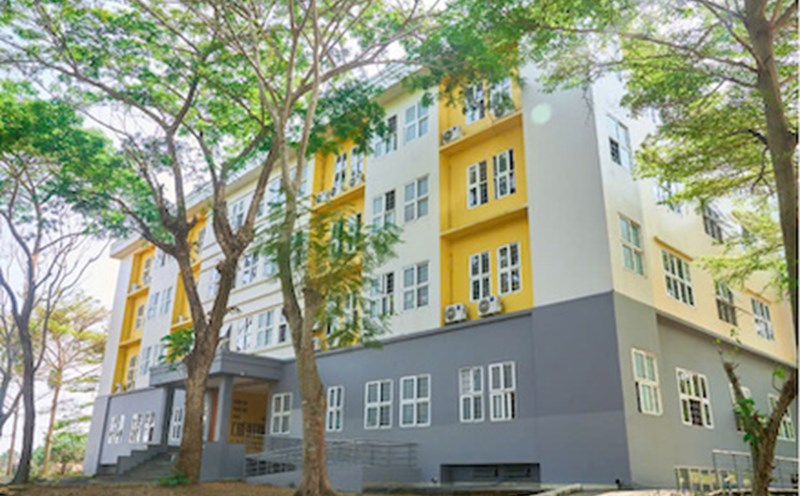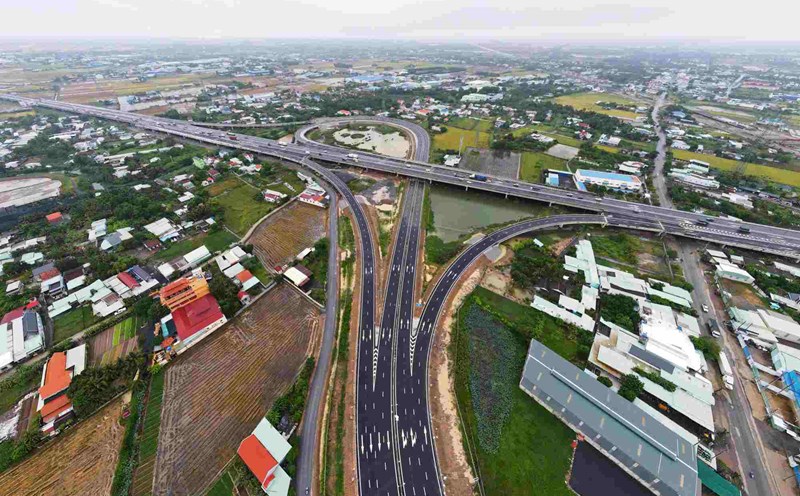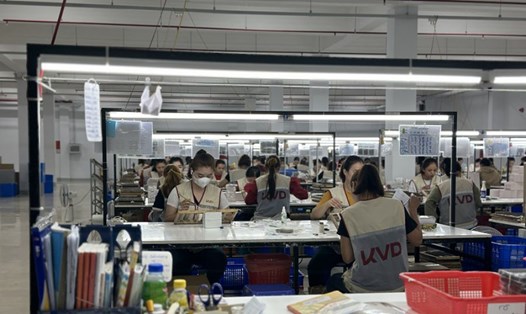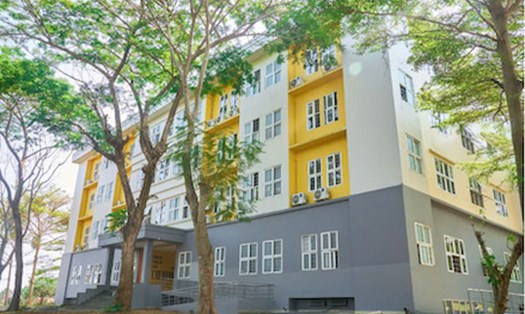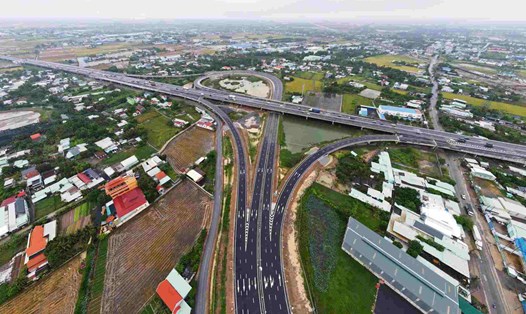The main reason for the above phenomenon is that after the COVID-19 pandemic, many enterprises have not fully recovered their production and business activities, so they have had to cut their workforce. In particular, some enterprises in the wood, garment, and footwear industries have seen a sharp decrease in orders, leading to unemployment and income instability, so they have to find other jobs. Among these, many workers have chosen to return to their hometowns in the Northern and Central provinces to live.
Unstable work, workers return home
In Binh Duong, due to unstable jobs and housing, many workers leave Binh Duong to return to their hometowns. Currently, many boarding houses in Binh Duong have been vacant for a long time without tenants. Binh Duong province has 28 industrial parks and about 10 industrial clusters in operation.
In addition, there are a series of industrial factories located among residential areas. The total number of workers in Binh Duong is about 1.3 million people. The average income of workers in Binh Duong is about 8 million VND/month, ranked among the provinces and cities with high income. Easy to find jobs and high income used to be the advantages for Binh Duong province to attract workers from other provinces. However, since the COVID-19 pandemic, many workers have begun to leave Binh Duong to return to their hometowns.
In Viet Sing residential areas (Thuan An City), many workers have returned to their hometowns. The boarding houses that were previously always full now have about 1/3 of their rooms vacant. The space of the boarding houses that were previously always bustling with workers is now deserted as workers who have been unemployed for a long time are forced to return to their hometowns.
Similarly, many boarding houses in Tan Uyen City have fallen into a state of desolation. Workers have checked out and returned to their hometowns and have not returned, so many boarding houses are empty. A workers’ dormitory with 1,300 rooms is more than half empty.
According to Mr. Tran Ngoc Luong - Director of Duc Luong Labor Supply Company Limited, the reason why workers leave the industrial province of Binh Duong to return to their hometowns is partly due to unstable housing. Long-term rental increases living expenses and affects the quality of life.
When workers come to Binh Duong to work for a long time but cannot buy land to build a house to stabilize their lives, their psychology is shaken. This makes many people decide to leave Binh Duong to return to their hometown because they have a more stable house.
Mr. Pham Van Tuyen - Deputy Director of the Department of Labor, Invalids and Social Affairs of Binh Duong province - confirmed that there is a situation of workers in Binh Duong returning to their hometown to work and live. However, it is noted that currently, there are many vacant rental apartments. Through assessment, this is a general trend of development.
Move to work in the informal sector
In Ho Chi Minh City, talking to a reporter from Lao Dong Newspaper, Ms. Nguyen Thi Thuy Duong - a former worker at PouYuen Vietnam Company - said that after more than a year of having to quit her job at this company, she is still in her hometown (Duc Hoa district, Long An province) and has not returned to work.
Ms. Duong said that in August 2023, when PouYuen Company had to cut its workforce due to lack of orders, she was one of about 9,500 workers who were laid off in four waves. Since then, Ms. Duong has stayed home to take her two children to school, do housework and not go to work. Ms. Duong said that because she had a stable house in her hometown and did not have much to live on, all expenses depended on her husband's salary.
Similarly, Ms. Tran Thi Hoang Trang (from Vinh Long province) is also an employee of PouYuen Vietnam Company. She said that after quitting her job at PouYuen Company (she had worked for PouYuen Company for more than 13 years), she had time to work as a bartender for a coffee shop, a job she loved and took advantage of her time to study while still working as an employee. After that, she also quit her job as a bartender and is currently at home without working anywhere.
“Working outside gives me more flexibility than working in a company, but the work and income are not as stable as when I work as an employee,” Trang shared.
Ms. Duong and Ms. Trang are just typical examples of many cases where after quitting their jobs at the company, they returned to their hometowns and did not return to Ho Chi Minh City to work as employees anymore.
There are many cases of enterprises dissolving, going bankrupt, ceasing operations due to the expiration of land leases or reduction of labor, leading to the movement of labor from Ho Chi Minh City to other provinces and cities or from the structural sector to the non-structural sector. Most recently, two enterprises in Linh Trung 1 Export Processing Zone had to cease operations due to the expiration of land leases. As a result, more than 600 employees of this enterprise also had to terminate their labor contracts and look for jobs elsewhere.
Ms. Nguyen Van Hanh Thuc - Director of the Ho Chi Minh City Employment Service Center - said that after the COVID-19 pandemic, many workers moved from Ho Chi Minh City to the provinces and have not returned.
“From the unemployment insurance settlement records and job search records submitted to the center, it shows that each year, more than 150,000 people apply for unemployment insurance, but are willing to work in the informal sector such as driving Grab, delivering goods for e-commerce platforms, selling online... without paying social insurance to continue receiving all the months of unemployment insurance benefits, and have no need to find a job during the unemployment period,” said Ms. Thuc.

